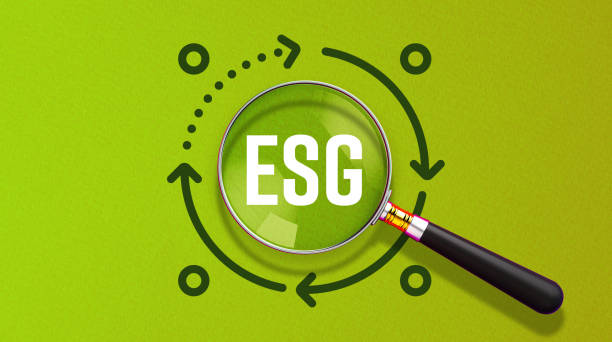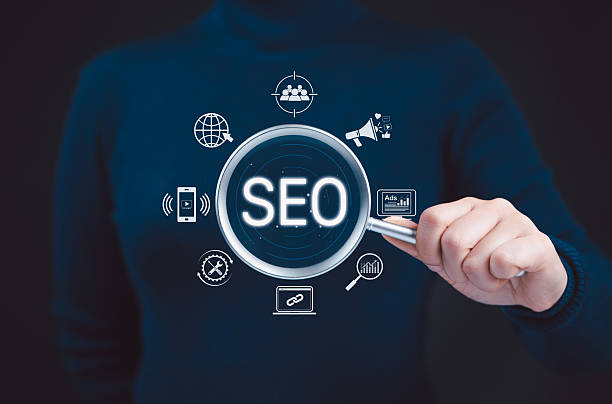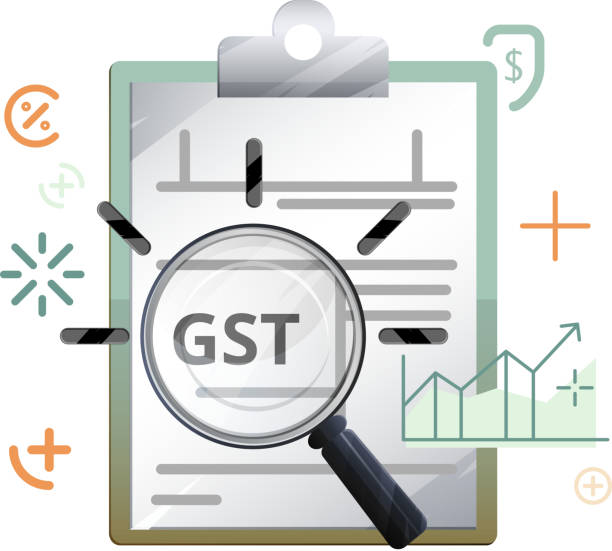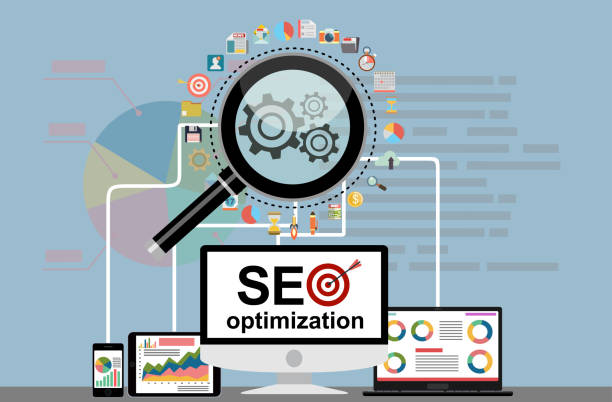Introduction to Off-Page SEO and Its Importance

#Off_Page_SEO, also known as Off-Page SEO, refers to a set of actions performed outside your website to increase its ranking and authority in search engines.
Unlike On-Page SEO, these strategies are not directly related to your site’s content or structure, but rather strengthen your domain authority based on signals received from external sources.
The importance of Off-Page SEO lies in the fact that search engines like Google recognize websites that have received inbound links from reputable and relevant sources as more trustworthy and authoritative.
This not only leads to improved ranking in search results but also increases referral traffic and brand awareness.
In other words, without a strong Off-Page SEO strategy, achieving top rankings in today’s competition is almost impossible. This section will explain and teach you the fundamentals of Off-Page SEO.
Link building or acquiring backlinks from other websites is the most crucial component of Off-Page SEO.
These links act as a vote of confidence for your site.
The more high-quality and relevant links you have, the more Google trusts your website.
The quality of links is far more important than their quantity; one link from a reputable and relevant site can have a greater impact than hundreds of low-value links.
Off-Page SEO also includes activities such as content marketing, social media engagement, participation in forums and specialized communities, and even media coverage.
All these actions indirectly contribute to increasing your brand’s credibility and recognition, ultimately leading to an improved position in search results.
Understanding these fundamental principles is crucial for anyone seeking online success.
This process requires continuous research, analysis, and execution to achieve desired results.
Are you tired of your company’s website not meeting your expectations? With Rasawweb, design a professional website that showcases the true face of your business.
✅ Increased attraction of new customers and sales leads
✅ Increased credibility and trust in your brand among your audience
⚡ Get free website design consultation!
The Difference Between On-Page and Off-Page SEO

#On_Page_SEO (On-Page SEO) and #Off_Page_SEO (Off-Page SEO) are two sides of the same coin in search engine optimization strategies, each playing a complementary role.
Their main difference lies in where the actions are performed.
On-Page SEO refers to all activities performed directly on your website; from optimizing content, keywords, site loading speed, user experience (UX), URL structure, title tags, and meta descriptions, to optimizing images and internal linking.
The primary goal of On-Page SEO is to provide an excellent user experience and facilitate the crawling and indexing of your content by Google bots. This section explains the boundaries between these two areas for better understanding.
In contrast, Off-Page SEO, as mentioned earlier, focuses on factors outside your website.
These factors increase your website’s credibility and authority in the eyes of search engines.
The main element in Off-Page SEO is link building (backlinking), which involves receiving links from other reputable websites.
Other activities such as social media marketing, participation in forums and blogs, content distribution on other platforms, and even online public relations also fall under Off-Page SEO.
While On-Page SEO helps search engines understand what your content is about, Off-Page SEO shows them how authoritative and trustworthy your website is. A successful SEO strategy requires a balanced and intelligent combination of both approaches.
Ignoring either of these sections can render your efforts fruitless.
Off-Page SEO is an essential complement to On-Page SEO, and without it, even the best content might not be seen.
Link Building (Backlinks): The Backbone of Off-Page SEO

#Link_building or acquiring #backlinks is undoubtedly the most important and influential aspect of Off-Page SEO.
This process involves receiving inbound links from other websites to your site.
Search engines consider backlinks as a vote of confidence from one site to another.
The greater the number and quality of these “votes,” the more your Domain Authority (DA) increases in Google’s view.
A strong and ethical link-building strategy can make a significant difference in your website’s ranking and traffic. This section delves into this vital topic with specialized guidance.
The quality of backlinks is far more important than their quantity.
One backlink from a reputable, industry-relevant, and high-traffic website is worth much more than dozens of backlinks from irrelevant or spammy sites.
Factors such as the linking site’s Domain Authority, the link’s thematic relevance, the link’s placement on the page, and the Anchor Text all influence the value of a backlink.
Building a strong and natural backlink profile requires patience, effort, and diverse strategies such as producing valuable content (which naturally attracts links), forum participation, advertorials, exchanging links with relevant sites, and disavowing toxic links.
Off-site optimization, or Off-Page SEO, is doomed to fail without proper attention to link quality and strategy.
In the table below, you can see common types of backlinks and their characteristics:
| Backlink Type | Characteristics | Impact on Off-Page SEO |
|---|---|---|
| Natural Backlinks (Editorial Links) | Links that websites automatically provide due to the quality of your content. | Highest Positive Impact; indicates content authority and value. |
| Guest Post Links | Links obtained by writing guest articles on other sites. | High Positive Impact; requires careful selection of the host site. |
| Directory Links | Links obtained by submitting your site to web directories. | Low to Medium Impact; some directories have low value. |
| Forum Links | Links obtained through forum participation and profile signatures. | Low to Neutral Impact; often NoFollow. |
| Social Media Links (Social Signals) | Links and shares on social platforms. | Indirect Impact; increases brand awareness and traffic. |
Types of Backlinks and Their Strategies

#Backlinks are not just one type; they come in various forms, each with a different value and impact on Off-Page SEO.
Understanding these differences and how to acquire each type of link is essential for developing a comprehensive and effective link-building strategy.
The main distinction between links is the “DoFollow” and “NoFollow” attribute.
DoFollow links allow search engines to pass “link juice” (authority) from the source site to the destination site, whereas NoFollow links do not pass this authority and are primarily used to prevent spam.
This section will educate and guide you through various link types and strategies for acquiring them.
Additionally, links can be categorized based on their source and acquisition method.
Editorial Links, which are naturally given due to the quality of your content, are the most valuable type of link.
Guest Post links, acquired by writing articles for other sites, can be very effective if the host site is relevant and reputable.
Profile links from directories, forums, and social networks also exist, and although they are usually NoFollow, they can help diversify your link profile and attract traffic.
Backlink acquisition strategies include producing valuable and shareable content, viral marketing, Broken Link Building, monitoring competitors and replicating their links, and establishing connections with influencers and bloggers.
Diversity in link sources and the naturalness of the link acquisition process are key to success in Off-Page SEO. Google highly values natural link profiles and can identify and penalize unnatural and manipulated links.
Does your current website adequately reflect your brand’s credibility? Or does it drive potential customers away?
Rasawweb, with years of experience in professional corporate website design, is your comprehensive solution.
✅ A modern, beautiful, and brand-identity-aligned website
✅ Significant increase in lead and new customer acquisition
⚡ Contact Rasawweb now for a free corporate website design consultation!
Off-Page SEO Analysis Tools

#Off_Page_SEO_analysis is almost impossible without the right tools.
These tools provide crucial information about your and your competitors’ backlink profiles, helping you identify new link-building opportunities and find and remove toxic links.
Tools like Ahrefs, SEMrush, Moz, and Majestic are among the most widely used and powerful tools in this field.
Each of these tools has its unique features and strengths that can be beneficial in various aspects of your Off-Page SEO strategy.
This section provides specialized guidance on the introduction and application of these tools.
Ahrefs is renowned for its vast backlink database and powerful competitor analysis capabilities.
You can use it to examine your backlinks, your competitors’ links, find content and keyword opportunities, and monitor lost links.
SEMrush in addition to backlink analysis, offers other comprehensive tools for keyword analysis, On-Page SEO, PPC, and content marketing.
Moz is known for its Domain Authority (DA) and Page Authority (PA) metrics, which are important benchmarks for assessing website authority.
Majestic, with its focus on Flow Metrics (Trust Flow and Citation Flow), helps you evaluate the quality and credibility of links.
Intelligent use of these tools can significantly accelerate and streamline your Off-Page SEO analysis and improvement process. They enable you to identify successful competitor strategies, recover lost links, and prevent harmful links from affecting your website.
Ultimately, these tools provide a comprehensive view of your Off-Page SEO status and facilitate data-driven decision-making.
The Role of Social Signals in Off-Page SEO

#Social_Signals or social signals refer to activities and interactions that users perform with your content on social networks; including likes, shares, comments, and followers.
Although Google has not directly stated that social signals are a direct ranking factor for SEO, it’s impossible to deny their indirect and powerful impact on Off-Page SEO and your website’s visibility.
This section descriptively and analytically examines the role of these signals in off-site optimization strategy.
When your content is shared on social networks, more traffic is directed to your website.
This increase in traffic, if accompanied by a good user experience, can send positive signals to search engines, such as reduced bounce rate and increased time spent on site.
Furthermore, widespread sharing can lead to your content being seen by bloggers, journalists, and influencers, which may ultimately result in acquiring natural and valuable backlinks.
In other words, social signals act not as a direct factor, but as a catalyst for other Off-Page SEO factors.
An active and strategic presence on social networks not only helps increase your brand awareness but also indirectly supports your Off-Page SEO strategy. Creating engaging and shareable content, interacting with your audience, and continuously promoting content on appropriate platforms are integral parts of a modern and comprehensive Off-Page SEO strategy.
Analyzing Domain and Page Authority (DA/PA)

#Domain_Authority (DA) and #Page_Authority (PA) are metrics developed by Moz used to predict the likelihood of a specific website or page ranking in search engine results.
These metrics are ranked from 0 to 100, with a higher number indicating greater authority.
Although these are not official Google metrics, they are widely used by SEO professionals as important indicators for evaluating link strength and ranking potential in Off-Page SEO strategy.
This section provides a specialized and analytical explanation of these metrics and their role in Off-Page SEO.
DA and PA are calculated based on multiple factors, including the number and quality of backlinks, domain age, and content volume.
Websites with high DA typically have higher-quality links compared to sites with lower DA.
When building links, your goal should be to acquire backlinks from sites with high DA and PA, as these links transfer more authority to your site and will have a more positive impact on your Off-Page SEO.
A high DA and PA for a website indicate greater trust from search engines. In the table below, you can see the factors that influence DA and PA:
| Influencing Factor | Explanation | Importance in Increasing DA/PA |
|---|---|---|
| Number and Quality of Backlinks | Inbound links from reputable and relevant sites. | Very High |
| Link Diversity | Variety of link sources and anchor texts. | Medium to High |
| Domain Age | The duration since the domain was registered. | Medium; older sites generally have more authority. |
| Content Quality | Comprehensive, unique, and user-friendly content. | High; good content attracts links. |
| On-Page SEO | Optimization of internal site elements such as speed, UX, and structure. | Indirect but Important; a healthier site attracts links. |
It should be noted that DA and PA are only approximate metrics and should not be the sole basis for decision-making.
Google has more complex algorithms that consider hundreds of factors for ranking.
However, using these metrics as a quick indicator to assess a link’s potential or the overall Off-Page SEO status of a website can be very useful.
Increasing DA and PA requires a comprehensive and long-term Off-Page SEO strategy focused on acquiring natural and high-quality links.
Risks and Common Mistakes in Off-Page SEO

#Off_Page_SEO, though powerful, can also come with risks, especially if incorrect strategies are adopted.
One of the biggest mistakes is attempting to manipulate rankings through “Black Hat SEO” techniques.
These methods include buying links, mass and low-quality link building, using Private Blog Networks (PBNs), and spamming forums with irrelevant links.
Google and other search engines constantly update their algorithms to identify these unnatural practices and penalize offending websites.
These penalties can include a significant drop in ranking or even complete removal of the site from search results.
This section, presented as a guide with thought-provoking content, warns you about which mistakes to avoid.
Another common mistake in Off-Page SEO is focusing solely on the quantity of links instead of their quality.
Low-quality or spammy and irrelevant links not only fail to improve rankings but can also harm your site’s credibility.
Ignoring the diversity of your backlink profile and overusing a single type of anchor text can also send negative signals to Google.
Failing to regularly review incoming links and not disavowing toxic links through Google’s Disavow tool is also a major risk.
For sustainable success in Off-Page SEO, one must always focus on ethical practices and adherence to Google’s guidelines. The fundamental question is whether the risk of a dangerous shortcut is worth jeopardizing years of effort and credibility for an online business? The answer is definitively no.
Your Off-Page SEO strategy should be based on producing valuable content, building genuine relationships, and acquiring natural, high-quality links.
Only with this approach can you ensure that your website will be visible in search results not only today but also in the long term.
Did you know your company’s website is the first point of contact for 75% of potential customers?
Your website is the face of your brand. With **Rasawweb**’s corporate website design services, build an online presence that earns customer trust.
✅ Create a professional and lasting image for your brand
✅ Attract target customers and boost online credibility
⚡ Get free consultation from **Rasawweb** experts!
The Future of Off-Page SEO and New Trends

#Off_Page_SEO, like other aspects of #Search_Engine_Optimization, is evolving, with new trends emerging.
Understanding these trends is essential for maintaining a competitive edge and ensuring the effectiveness of your future strategies.
One of the most significant changes is Google’s increasing emphasis on the E-A-T concept (Expertise, Authoritativeness, Trustworthiness).
This means that merely having backlinks is not enough; links must come from sources recognized as expert, authoritative, and trustworthy in their field. This section, in a news and analytical format, outlines the future landscape of Off-Page SEO.
Other trends include the increasing importance of Brand Mentions (mentioning a brand name without a direct link).
Google can recognize brand names even without a direct link and consider them positive signals for a business’s credibility and popularity.
This highlights the growing importance of brand marketing, digital public relations, and a strong presence in media and social networks.
Furthermore, with advancements in artificial intelligence and Google’s algorithms like BERT and MUM, search engines’ understanding of natural language and the true meaning behind keywords is deepening.
This makes valuable, comprehensive, and high-quality content that naturally attracts links even more crucial.
Focusing on creating real value for the user, producing unique content, and building strong relationships with other industry players will shape the future of Off-Page SEO. This comprehensive approach, which goes beyond mere link building, will help you stay sustainable and achieve top rankings in the ever-changing SEO landscape.
Off-Page SEO is transforming into a more complex and human-centric process that focuses on genuine authority and value.
Summary and Key Tips for Successful Off-Page SEO Implementation

#Off_Page_SEO is a vital and indispensable component of any successful SEO strategy.
This process goes beyond merely acquiring backlinks and includes building online authority, trust, and brand awareness.
To achieve and maintain high rankings in search engine results, it’s necessary to adopt a comprehensive, ethical, and long-term approach.
This comprehensive guide’s summary focuses on key and actionable tips to help you implement your Off-Page SEO in the best possible way.
This section, presented as guidance and instruction, summarizes all the content within a practical framework.
The first and most important tip is to produce unique and valuable content. Your content should be of such high quality that it naturally attracts links, and others want to share it and link to it.
Second, focus on the quality of backlinks, not their quantity.
One link from a reputable and relevant site is worth far more than dozens of low-quality links.
Third, maintain diversity in your backlink profile.
Utilize various sources such as guest posts, digital public relations, and social media activities to attract links.
Fourth, continuously monitor and analyze your backlink profile.
Use SEO tools to identify toxic links and new link-building opportunities.
Fifth, take social media activities seriously.
Although social signals are not direct ranking factors, they help increase site visibility and traffic and can lead to acquiring natural links.
Sixth, be patient.
Off-Page SEO results are typically time-consuming and require continuous effort.
Finally, always adhere to White Hat SEO principles and Google’s guidelines to avoid potential penalties and build a strong foundation for your website’s long-term success.
Off-Page SEO is a long-term investment that will bring significant returns for your business.
Frequently Asked Questions
| Question | Answer |
|---|---|
| What is Off-Page SEO? | Off-Page SEO refers to a set of activities and methods performed outside your website to improve its ranking in search engines, such as building backlinks. |
| Why is Off-Page SEO important for a website? | Off-Page SEO shows search engines that your website is authoritative, popular, and trustworthy, which helps increase domain authority and ranking. |
| What is the most important factor in Off-Page SEO? | Backlinks, or links provided from other sites to yours, are the most important factor, especially if they come from reputable sites. |
| What are the characteristics of a quality backlink? | A quality backlink comes from reputable sites (with high authority), is relevant to your site’s topic, and uses appropriate (natural) anchor text. |
| Do social networks play a role in Off-Page SEO? | Yes, sharing content on social media can help increase visibility and indirect traffic, sending positive social signals to search engines. |
| What is a PBN and is it recommended? | A PBN (Private Blog Network) is a network of private websites used to build backlinks to the main site. Google considers this method spam, and its use is strongly prohibited and can lead to penalties. |
| How is Natural Link Building done? | By producing valuable and shareable content, connecting with bloggers and influencers, and attracting media attention. |
| What is Anchor Text in a backlink? | It is the text within which the link is placed. Using diverse and keyword-relevant anchor texts appears more natural and aids SEO. |
| How is Local SEO related to Off-Page SEO? | Local SEO includes off-site activities such as registering with Google My Business, local directories, and obtaining online reviews, which help businesses appear in local search results. |
| How can competitor backlinks be analyzed? | By using tools like Ahrefs, Semrush, or Moz, you can analyze competitor backlink profiles and identify new link-building opportunities. |
And other advertising services of Rasa Web Advertising Agency:
Smart Marketplace: A fast and efficient solution for customer acquisition, focusing on attractive UI/UX design.
Smart UI/UX: An innovative service for increasing user engagement through SEO-driven content strategy.
Smart Google Ads: Revolutionize click-through rates with an SEO-driven content strategy.
Smart Digital Branding: Designed for businesses seeking to increase click-through rates through marketing automation.
Smart Link Building: An innovative service for enhancing customer behavior analysis through precise audience targeting.
And over hundreds of other services in internet advertising, advertising consultation, and organizational solutions
Internet Advertising | Advertising Strategy | Advertorials
Sources
Comprehensive Off-Page SEO Guide
What is Off-Page SEO? Off-Site SEO Tutorial
What is Off-Page SEO and How Does it Help Improve Rankings?
What is Off-Page SEO?
? Ready to transform your business in the digital world? Rasaweb Afarin Digital Marketing Agency, specializing in SEO, content marketing, and corporate website design, is your reliable partner on the path to growth and success.
📍 Tehran, Mirdamad Street, next to Bank Markazi, Southern Kazeroon Alley, Ramin Alley, No. 6




